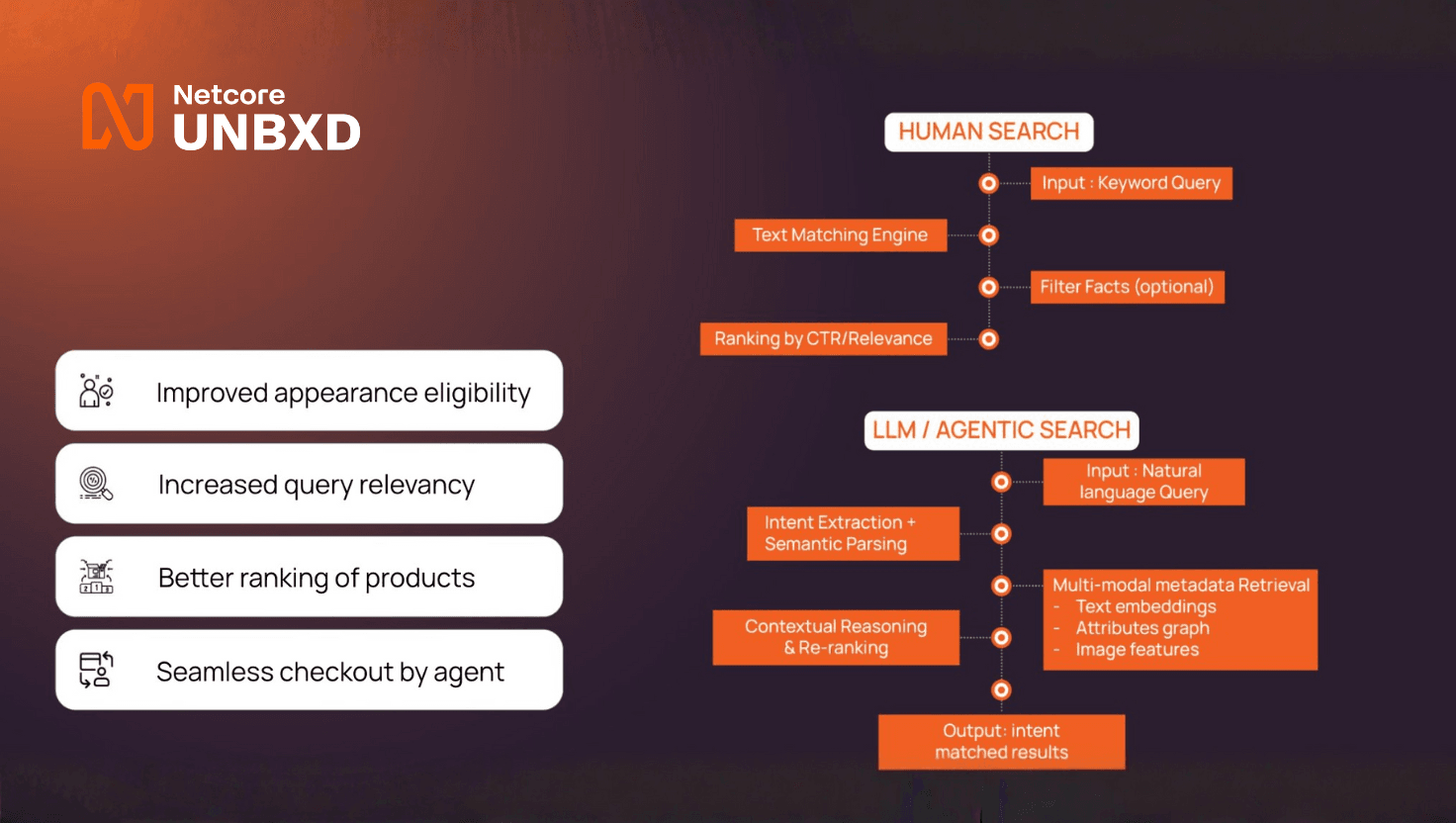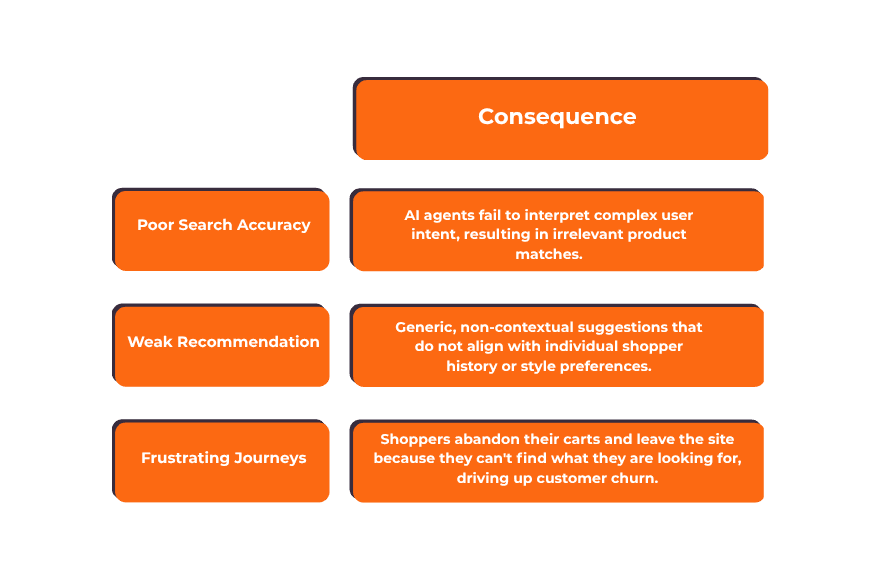Introduction: The Unspoken Truth of Generative AI in Commerce
Generative AI (GenAI) is no longer a futuristic concept; it is actively transforming the ecommerce landscape. From powering sophisticated conversational search to delivering hyper-personalized recommendations and even auto-generating product content, its impact is undeniable.
However, a fundamental truth is often overlooked: even the smartest AI cannot perform miracles if the data it relies on is messy, incomplete, or inconsistent.
When your product catalog—the digital blueprint of your business—lacks metadata, structure, or complete attributes, your GenAI efforts will inevitably fall short. Clean, enriched metadata isn't a mere technical detail; it is the non-negotiable foundation that determines how accurately your digital commerce ecosystem understands, recommends, and ultimately sells.
Why great metadata is the biggest AI differentiator

Generative AI models, including Large Language Models (LLMs), do not "think" like humans. They interpret structured and unstructured data to understand meaning, context, and relationships.
In the world of ecommerce, your product metadata is the language the AI uses to understand your catalog—attributes like color, size, style, material, brand, and fit are the grammar.
When this metadata is clean and standardized, AI systems can accurately and confidently connect nuanced shopper queries to the most relevant products.
When it is fragmented or missing, even the most advanced LLMs will produce irrelevant or confusing responses—a phenomenon often referred to as "Garbage In, Garbage Out."
According to industry reports, poor data quality costs businesses billions annually. In the age of AI, this cost is amplified exponentially across every automated customer touchpoint.
The High Cost of Messy Data in AI-Powered Commerce
When GenAI works with incomplete or inconsistent product metadata, the customer experience degrades rapidly, leading to lost conversions.
The AI’s Blind Spots:
If your catalog is missing metadata, your AI shopping agent won't be able to handle natural language queries that involve product nuances, such as:
"Formal black leather shoes under $100 for a wide fit"
"Vegan skincare for sensitive, oily skin with SPF 30"
"Sustainable cotton bedding that is machine-washable"

First Step for Agentic Commerce - Making Data AI-Ready
Data enrichment converts raw, disparate catalogs into machine-understandable assets. This crucial process involves:
Filling Attribute Gaps: Inferring and adding missing details (e.g., adding "Sleeve Length: Long" based on an image or description).
Taxonomy Alignment: Ensuring consistent categorization across all products and channels (e.g., making sure a "sweater" is not also randomly tagged as "jumper" or "hoodie").
Relationship Mapping: Creating links between related items, bundles, or complementary products to power better cross-sell and up-sell.
This enables truly precise, context-aware discovery experiences where shoppers find precisely what they want, even when their initial search is vague or incomplete.
Enrichment for Agentic Commerce: The Netcore Unbxd Advantage
As commerce rapidly evolves towards Agentic Commerce—where intelligent systems act autonomously on the shopper's behalf—the requirement for structured, complete metadata becomes mission-critical. These advanced agents rely entirely on structured metadata to understand context, intent, and complex relationships across millions of SKUs.
Netcore Unbxd's approach addresses this challenge head-on by combining advanced, scalable enrichment pipelines with AI-driven taxonomy mapping.
Netcore Unbxd's Core Capabilities:
AI-Ready Transformation: Automatically transforms unstructured catalog data into a structured, consistent format that LLMs can instantly utilize.
Machine Learning-Driven Inference: Uses proprietary machine learning models to infer and fill missing attributes with high accuracy, minimizing manual effort.
Unified Taxonomy: Enforces consistent product categorization and tagging across all categories and channels, ensuring a single source of truth.
Empowered Engines: Provides a high-quality, unified dataset that fuels search, personalized recommendations, and all other AI systems.
This unified enrichment layer is the catalyst for Agentic Commerce, enabling intelligent systems to act, recommend, and personalize autonomously with confidence.
Conclusion
Generative AI is a powerful tool, but its performance ceiling is defined by the quality of the data it consumes.
Clean, enriched product data is what makes intelligent commerce truly intelligent. Without this foundation, your AI isn't making smart decisions—it’s just a powerful guessing machine.
Netcore Unbxd ensures your product data is the strongest, most reliable foundation for your next-generation AI-powered shopping experiences.